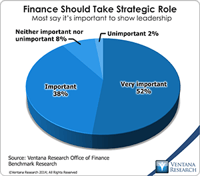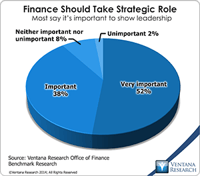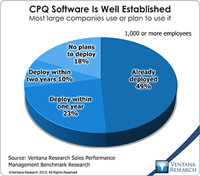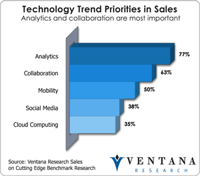The imperative to transform the finance department to function in a more strategic, forward-looking and action-oriented fashion has been a consistent theme of practitioners, consultants and business journalists for two decades. In all that time, however, most finance and accounting departments have not changed much. In our benchmark research on the Office of Finance, nine out of 10 participants said that it’s important or very important for finance departments to take a strategic role in...
Read More
Topics:
Big Data,
Planning,
Predictive Analytics,
Social Media,
Governance,
GRC,
Human Capital,
Mobile Technology,
Office of Finance,
Budgeting,
close,
Continuous Accounting,
Continuous Planning,
end-to-end,
Tax,
Tax-Datawarehouse,
Analytics,
Business Analytics,
Business Collaboration,
Business Performance,
CIO,
Cloud Computing,
Financial Performance,
In-memory,
Uncategorized,
CFO,
CPQ,
Risk,
CEO,
Financial Performance Management,
FPM
Last year Ventana Research released our Office of Finance benchmark research. One of the objectives of the project was to assess organizations’ progress in achieving “finance transformation.” This term denotes shifting the focus of CFOs and finance departments from transaction processing toward more strategic, higher-value functions. In the research nine out of 10 participants said that it’s important or very important for the department to take a more strategic role. This objective is both...
Read More
Topics:
Big Data,
Planning,
Predictive Analytics,
Governance,
GRC,
Office of Finance,
Budgeting,
close,
end-to-end,
Tax,
Tax-Datawarehouse,
Analytics,
Business Performance,
CIO,
Financial Performance,
In-memory,
CFO,
CPQ,
Risk,
CEO,
Financial Performance Management,
FPM
PROS Holdings, a provider of price and revenue optimization software, has an agreement in principle to acquire Cameleon Software, which offers configure, price and quote (CPQ) applications. The combined company is likely to benefit from a broader geographic presence (PROS is based in Houston while Cameleon is in Toulouse, France) for their sales and marketing efforts. However, the longer-term strategic value of the merger lies in the combination of the related categories of price optimization...
Read More
Topics:
Sales,
Sales Performance,
FP&A,
PRO,
PROS,
Operational Performance,
Analytics,
Business Analytics,
Business Collaboration,
Business Performance,
Financial Performance,
CFO,
CPQ,
CEO,
FPM,
Price Optimization,
Profitability
Most organizations see improving the effectiveness of sales as a way to increase productivity. Those organizations that take advantage of the latest sales applications and technology are finding themselves with a competitive advantage, but many organizations lack the time and resources to assess and deploy appropriate platforms. That’s a shame, since most sales organizations have plenty to improve in their selling, forecasting, incentives and planning according to our latest research on sales...
Read More
Topics:
Sales,
Sales Performance,
Marketing,
PIM,
Sales Compensation,
Sales Forecasting,
Operational Performance,
Business Performance,
Financial Performance,
CPQ,
CRM,
Product Information Management,
SFA












